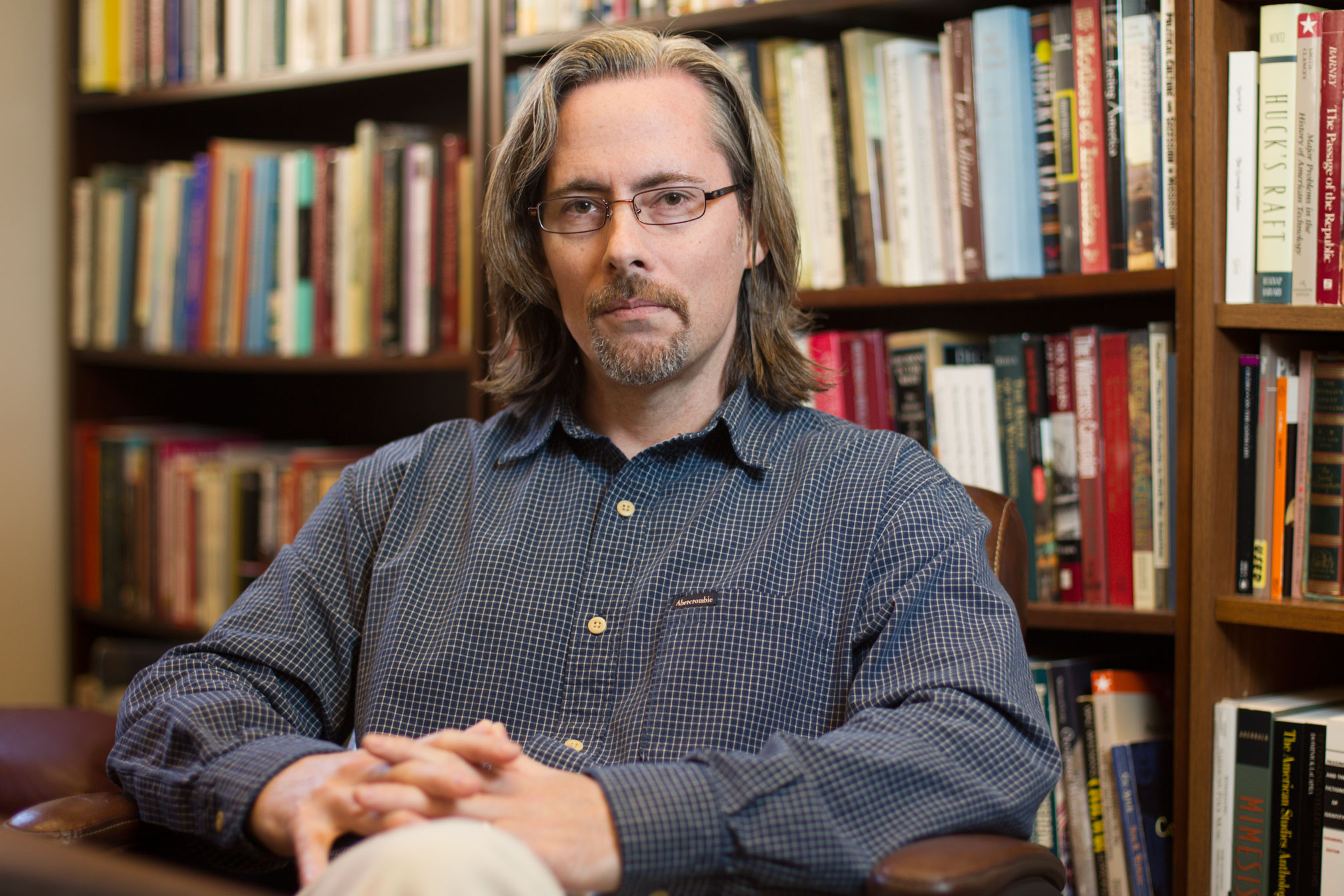Professor Stephen Berry Announces Grants Roundtables

Stephen Berry is the Amanda and Greg Gregory Professor of the Civil War Era in the UGA Department of History and the Willson Center’s associate academic director for external grants. In that role, he is currently spearheading an initiative to make the Willson truly the central resource for grants in humanities and arts at the University of Georgia. As part of that initiative, the Willson Center will hold the first in a series of external grants roundtables and town-hall style discussions on November 5 from 4 – 5:30 pm in Room 148 of the Miller Learning Center.
In his column this month, Professor Berry writes about what gives scholarship in the humanities and arts its intrinsic value, and about how university faculty can rise to the funding challenges presented by the current budgetary environment.
From Associate Academic Director Stephen Berry
Dear Colleague,
I am delighted to be joining the Willson Center as associate director for external grants. I cannot remember a time when I was not passionately committed to the humanities and arts. Indeed, my career as an historian began, in some ways, when I was seven. An elementary school teacher went around the room asking us what we wanted to be when we grew up. My peers, I was startled to learn, wanted to be athletes and detectives, rock stars and millionaires. These were clearly good options, and I was disappointed not to have thought of them first. Nevertheless I meekly admitted that I wanted to be an Egyptologist, or perhaps a medievalist, or (succumbing to the need to appear a little more masculine) a wreck diver.
From an early age, there was something about the past that tugged at me. Thinking on the dead was like laying in the grass and staring at the stars. In pondering on all the people who had gone before, I felt humbled by, and yet connected to, the great and ever unfolding drama of human be-ing. These dead, I decided, had done one important thing I hadn’t: they’d died. And so strangely they could teach me how to live — tell me what mistakes not to make, what promises to live up to, what prejudices to live down. Their very pastness reminded me that the world they built was bequeathed to us and we hold it in trust. Soon enough we’ll be gone, too, and we must do all we can to pass on a better world to those who go on without us.
The things we really value in our lives, we do not put a price tag on. Some things are not measured that way. Some things enrich us differently, in the ways that really count.
The humanities and arts abound with those kinds of riches. But state support for them has been declining for some time. We can hope that those funds will return when the economy recovers, but it seems unlikely, especially since that support was eroding before the economic downturn. One way to offset those losses is through the pursuit of foundation and federal grants. Such a solution comes with problems of its own. Worthy projects do not always fit the funding priorities at the major agencies, and we should never stop advocating for a level of state support that helps to foster a tolerant, diverse, and erudite democracy.
But in pursuing external grants — in competing (and winning) at the national level — we help to make a collective case for the value of the humanities and arts generally and the value of the work we do here at UGA specifically. The Willson Center is committed to helping arts and humanities faculty who are interested in pursuing external grant opportunities and we will, in the coming semesters, be rolling out programs and resources that make the process of grant-getting more straightforward, communal, and engaging.
We want to involve you in the collective building of something we will all actually use, so we invite all interested humanists and artists to an external grants roundtable and town-hall style discussion to be held November 5 from 4 to 5:30 pm in Room 148 of the Miller Learning Center. Faculty panelists who have been successful in securing funding from the larger national agencies will give short presentations, and representatives from the Office of the Vice President for Research will be on hand to answer questions about existing procedures and support for faculty applying for grants. We also hope to engage you in a discussion of what the Willson can do to help. Certainly we know that the university does not always provide the infrastructural support for competitive external grants, and we’d like to work with you to change that both quickly and effectively. To that end, we hope you will take a moment to answer a few survey questions about the kinds of programs you’d like to see in the future. We’ll send the survey out in the coming weeks, along with further details about the roundtable and discussion.
Finally, please note that the next opportunity to apply for Willson Center Graduate Research Awards has a deadline of January 14, 2013. Professor Nicholas Allen, the Willson Center director, will host a workshop to answer questions on the program and give advice on effective application strategies on Wednesday, November 14 from 12:30 to 2 pm in Room 150 of the Miller Learning Center. The workshop will include a brief presentation by Kylie Horney of the History Department, whose project “From Vigorous & Bold Operations” won her this year’s Janelle Padgett Knight Graduate Award. The award honors Janelle Padgett Knight, who was a lifelong resident of Georgia, teacher, and an avid supporter of higher education in the state. Current details of the Willson Center’s Graduate Research Award are available here.
Thanks for listening. The humanities and arts are the heart and soul of a flagship university. Let’s fight for their value together.
